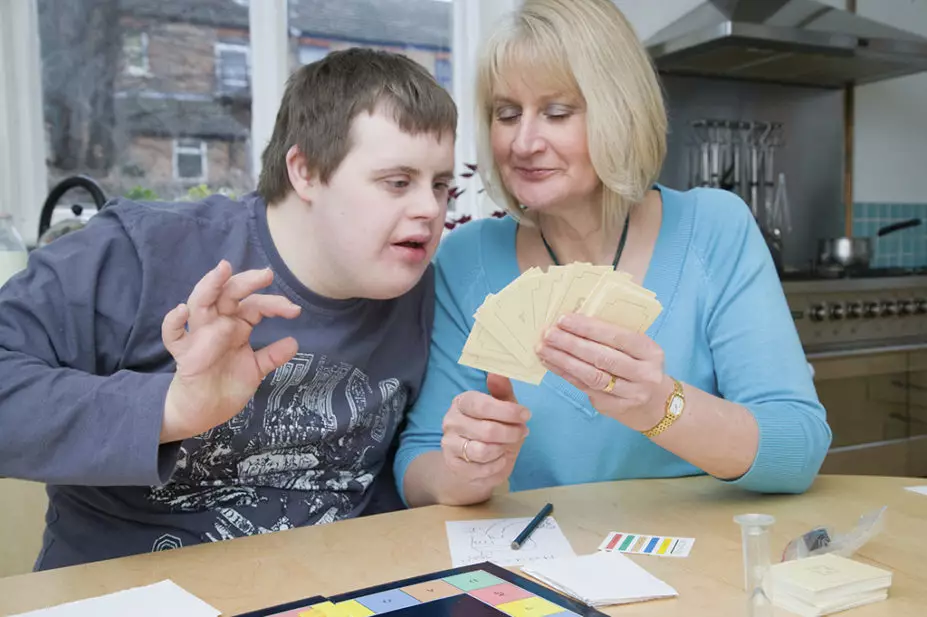
Shutterstock.com
In November 2020 — after working on a two-year pilot project to provide specialist optimisation reviews for adults with learning disabilities and/or autism living in care homes — we became the proud recipients of the 2021 HSJ Patient Safety Awards’ ‘Learning disabilities initiative of the year’ award.
We didn’t set out to win anything. Our aim, along with local clinical commissioning groups (CCGs) in South West London and other stakeholders, was to reduce health inequalities and help 1,000 people with learning disabilities to live happier, healthier and longer lives.
We knew that people with learning disabilities have long been at a disadvantage when it comes to their healthcare needs. They often present with complex physical, mental health and social care needs and, by the most recent estimates, are likely to die around 25 years earlier than the general population.
We reviewed patients’ notes and liaised with their GPs, carers, family members and anyone else involved in their care, as appropriate, to create individualised medicines optimisation care plans
In recent years, a few initiatives — such as the ‘Stopping overmedication of people with a learning disability, autism or both/Supporting Treatment and Appropriate Medication in Paediatrics‘ (STOMP/STAMP) schemes and the ‘Learning Disabilities Mortality Review‘ — have brought these inequalities to the forefront of the healthcare agenda.
Specialist pharmacists can play a pivotal role in improving the quality of medicines use and prescribing in this group by adopting a patient-centred, multidisciplinary approach, and we decided we wanted to take the challenge.
The overarching aim of our project was to provide holistic medication reviews while working with patients, families, clinicians, care home staff and others to ensure that the necessary medicines are prescribed and taken as intended, and that any inappropriate medicines are discontinued safely.
There were some initial obstacles that we had to overcome, including multiple honorary contracts, access to IT systems and, most importantly, identifying where each of the 1,000 patients were to raise awareness of the service.
We knew there were 134 GP practices across the five boroughs, and at least 123 registered care homes providing care for people with learning disabilities, so we started by contacting the GP practices and planning our initial care home visits based on the responses; prioritising the care homes if safety concerns were raised.
Once we had access to the patients’ electronic care records, we were then able to start reviewing patients face-to-face. We reviewed their notes and liaised with their GPs, carers, family members and anyone else involved in their care, as appropriate, to create individualised medicines optimisation care plans.
Other similar services in the country have focused primarily on STOMP/STAMP initiatives; however, we wanted to provide holistic reviews to optimise all medicines, not just psychotropics.
So, we also looked at local and national prescribing guidelines, cost-effective prescribing initiatives and physical health medicines, and checked that the annual learning disabilities health checks were happening, were meaningful and were being followed up appropriately.
Once all parties were happy with the plan, we worked with the carers to facilitate the agreed changes, and provided advice and support along the way. Very often these plans included behavioural support strategies, such as the introduction of or a referral to behaviour analysts, to be implemented alongside medication withdrawal.
Unfortunately, at that point the COVID-19 pandemic struck and we were forced to change our way of operating. We were not set up for remote working and, depending on the borough, there was a three- to six-month delay before we could restart these reviews.
To date, we have completed 553 medication reviews and made 2,212 recommendations to prescribers; 1,776 (80%) of which have been accepted. Around a third of all accepted interventions were associated with STOMP/STAMP and psychotropic medicines, and 442 medicines have been stopped.
We are a little behind our target of 1,000 patients but we hope the project will be extended or funding will be made available to continue the service, allowing us to focus on coproduction and quality of life measures to ensure that medication reviews and other interactions with healthcare professionals are as meaningful as they can be.
We are also waiting to hear if the service will be extended to other people with learning disabilities, such as those in supported accommodation or living at home.
The feedback from patients, families and carers has been positive, and GPs were grateful for our help with these highly specialist and time-consuming reviews; we have certainly highlighted the positive impact that pharmacists can have in preventing medicines-related harm and improving the quality of care in this patient group.
We hope that, by sharing our experience, it will lead to similar initiatives being rolled out across the country and help upskill other pharmacists in primary care so that they too can support people with learning disabilities and autism.
Aiste Navickaite and Amanda Lee are advanced specialist mental health pharmacists at South West London and St George’s Mental Health NHS Trust


